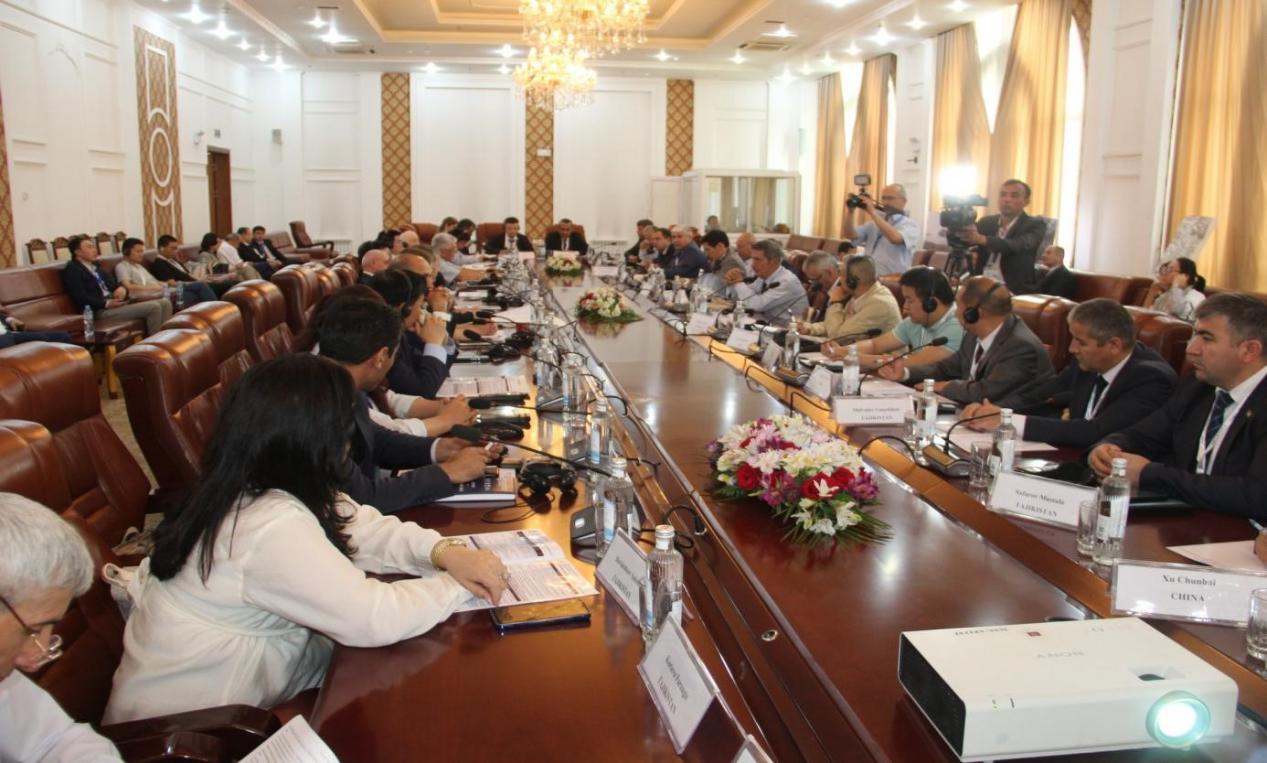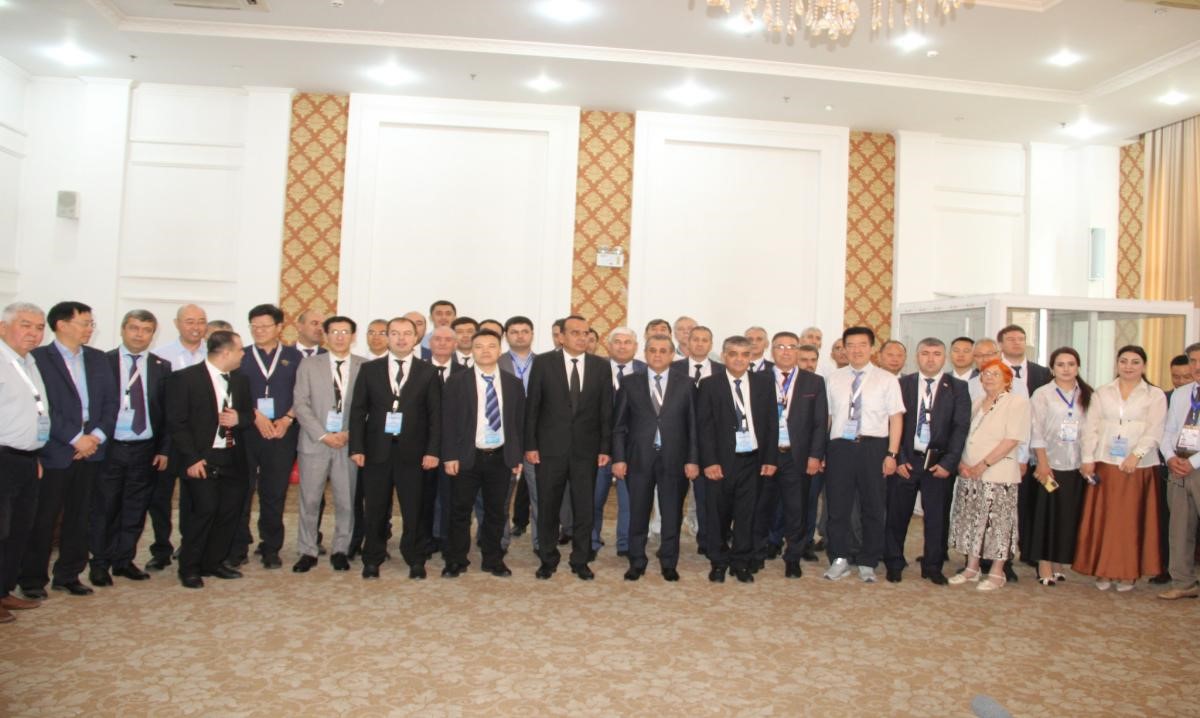"Glaciers and Science" Side Event Successfully Held at High-Level International Conference on Glaciers' Preservation
2025-06-13
From May 29 to June 1, the High-Level International Conference on Glaciers' Preservation was successfully held in Dushanbe, the capital of Tajikistan. The conference was hosted by the Government of the Republic of Tajikistan and co-organized by international institutions including the United Nations Educational, Scientific and Cultural Organization (UNESCO), the World Meteorological Organization (WMO), the United Nations Development Programme (UNDP), and the Asian Development Bank (ADB). The conference brought together approximately 2,500 participants from around the world, including government leaders, heads of international organizations, glaciologists, and policymakers.
On May 29, during the conference, a side event titled "Glaciers and Science" was successfully held at the National Library of Tajikistan. The event was co-hosted by the National Academy of Sciences of Tajikistan and the Xinjiang Institute of Ecology and Geography (XIEG) of the Chinese Academy of Sciences (CAS). It was jointly organized by the CAS Research Center for Ecology and Environment of Central Asia (Dushanbe), the Center for Research of Glaciers of the National Academy of Sciences of Tajikistan, and the Institute of Water Problems, Hydropower and Ecology of the National Academy of Sciences of Tajikistan.
As one of the key parallel events of the high-level conference, the "Glaciers and Science" side event focused on strengthening scientific and technological cooperation between China and Tajikistan in the fields of glacier research and monitoring technologies. Participants shared the latest scientific advances on a range of topics, including the role of glaciers in regulating water resources in Central Asia, their responses to climate change, and innovations in modern monitoring technologies. The event also underscored the urgency of global collaboration and scientific support for glacier protection.

Participants of the side event (Image by XIEG)
In his opening remarks at the side event, Prof. Amonzoda Ilhom Temur, Vice President of the National Academy of Sciences of Tajikistan, emphasized that the Central Asian region-particularly Tajikistan-is facing a water scarcity crisis driven by accelerated glacier retreat. This has resulted in an increasing frequency of natural disasters such as mudslides, floods, landslides, and avalanches, posing serious threats to river ecosystems and the stability of high-mountain ecological systems. Prof. Amonzoda called on scientists from China and Tajikistan to further strengthen cooperation and to undertake joint, systematic research on glacier degradation processes—including investigation, modeling, and forecasting—to provide essential scientific support for sustainable water resource management.
Prof. Duan Weili, Deputy Director of XIEG, stated that the accelerating glacier retreat and shifts in hydrological cycles have directly threatened the water security, agricultural sustainability, and energy stability of 70 million people in Central Asia. These changes are posing serious challenges to the region’s population, environment, and economy. He emphasized the urgent need for in-depth scientific research and the formulation of effective adaptation and sustainable development strategies.
Abdusattor Saidov, Co-Director of the CAS Research Center for Ecology and Environment of Central Asia (Dushanbe) and Corresponding Member of the National Academy of Sciences of Tajikistan, emphasized that Tajikistan’s glaciers are not only a valuable source of freshwater but also a key regulator of water resources and climate across the Central Asian region. He called for urgent and coordinated efforts by the scientific community, national governments, international organizations, and society at large to preserve glaciers.
During the thematic session of the side event, scientists and representatives from China, Tajikistan, Germany, Russia, Uzbekistan, Kyrgyzstan, and various international organizations delivered academic presentations on key topics, including the role of glaciers in regulating water resources and ensuring water security in Central Asia; the impacts of climate change on glaciers and snow-covered ecosystems; and modern methods of glacier monitoring. Experts shared the latest research findings, explored pathways for scientific collaboration and technological innovation, and jointly developed science-based response strategies, thereby contributing to global efforts to protect glaciers.
As a major event within the framework of the high-level conference, the “Glaciers and Science” side event provided a vital platform for fostering a joint response to the global challenge of glacier retreat, strengthening cross-border cooperation on water resources, and promoting scientific and technological exchanges. The event’s outcomes strongly advanced the implementation of the United Nations resolutions on the International Year of Glaciers’ Preservation2025 and the Decade of Action for Cryospheric Sciences (2025–2034).

Group photo (Image by XIEG)
Contact
LONG Huaping
Xinjiang Institute of Ecology and Geography
E-mail: longhp@ms.xjb.ac.cn
Web: http://english.egi.cas.cn



